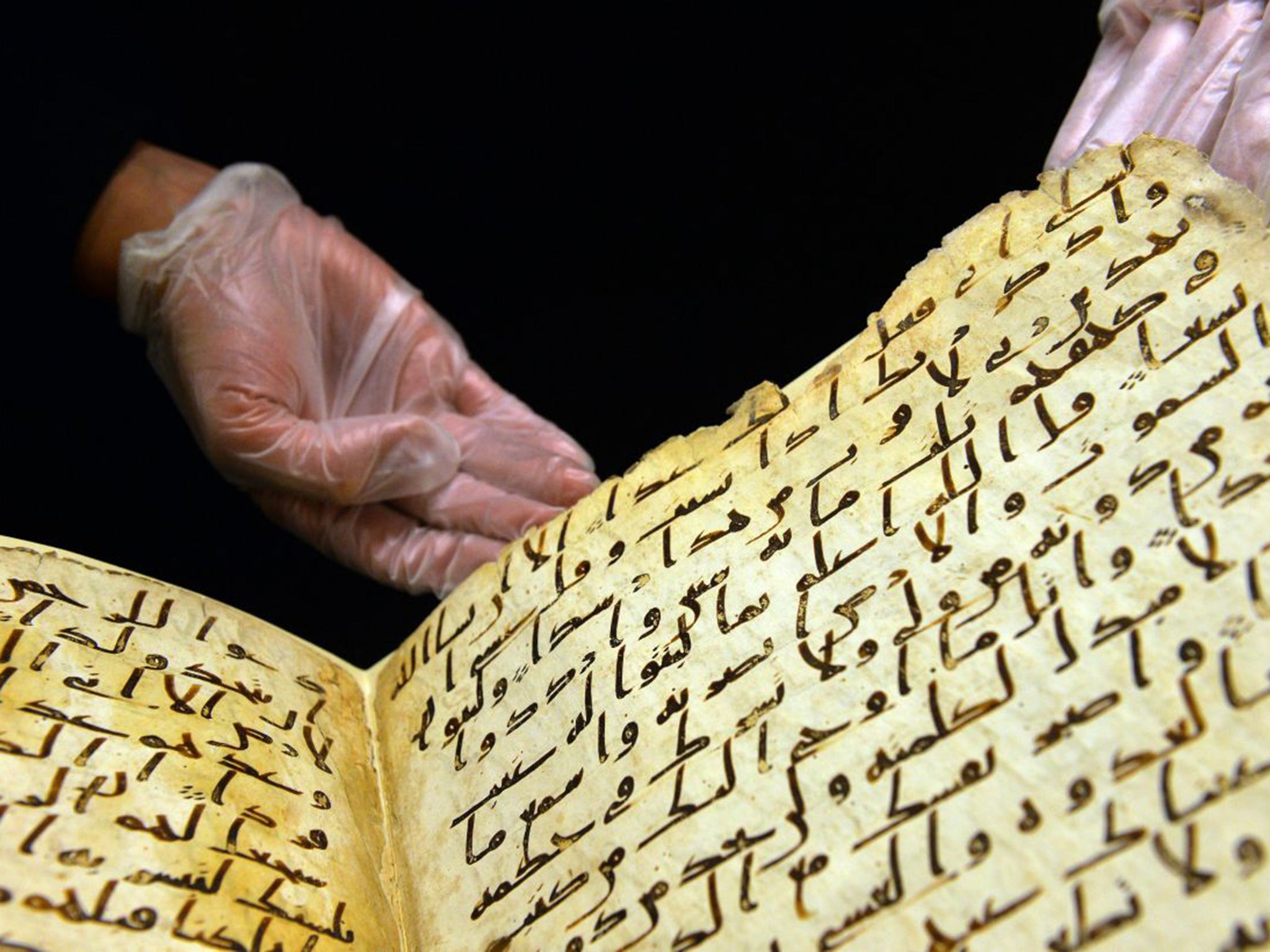Birmingham Koran fragments could be from first completed version of Muslim holy book, academic claims
Jamal bin Huwareib says Birmingham Koran is one of the first assembled by Abu Bakr, companion of the Prophet Mohamed

Fragments of a Koran discovered in the archives of Birmingham University library could belong to the first completed version of the Muslim holy book ever written, according to astonishing claims from a leading academic.
Jamal bin Huwareib claims that the Birmingham Koran is one of the first assembled by Abu Bakr, a companion of the Prophet Mohamed. The Prophet is believed by Muslims to have received the words of the book directly from God through the Angel Gabriel.
At first the Koran was committed to memory and its various written parts scattered among different scribes. It was Abu Bakr who ordered its collection into a single document.
“It’s the most important discovery ever for the Muslim world,” Mr bin Huwareib, managing director of the Mohammed bin Rashid Al Maktoum Foundation, an education foundation set up by the ruler of the United Arabe Emirates, told the BBC. “I believe this is the Koran of Abu Bakr.”
The manuscript was discovered at Birmingham University in the summer. Carbon dating suggests it was written between 568 and 645, making it the oldest known Koran. The later date is just 13 years after the death of the Prophet Mohamed in 632.
Abu Bakr was a friend and adviser to Mohamed. He was the first person outside his family to convert to Islam and became the first Muslim caliph in 632.
Mr bin Huwareib added that the quality of the calligraphy and parchment in the two pages of the Koran found in Birmingham suggest it was commissioned for someone in the elite. “This version, this collection, this manuscript is the root of Islam, it’s the root of the Koran,” he added. “This will be a revolution in studying Islam.”
Academics also believe that Birmingham pages belong to a Koran held in the Bibliothèque Nationale de France in Paris. That Koran is known to have once been held in the held in the Mosque of Amr ibn al-As in Fustat, Egypt’s oldest mosque, built in 641.
Some researchers, such as Mustafa Shah, from the Islamic studies department at the School of Oriental and African Studies in London, have their doubts about the age of the Birmingham Koran pointing out that the style of writing and grammar is inconsistent with the early dating.
But Oxford University’s Radiocarbon Accelerator Unit, which dated the parchment, are confident their dating of the parchment is accurate to 95 per cent.
David Thomas, Birmingham University’s professor of Christianity and Islam, says that if the dating is correct then it comes from the earliest years of Islam and “the person who actually wrote it could well have known the Prophet Mohamed”.
“It would have been a monumental piece of work,” he added, but also said that Mr bin Huwareib’s claim that it is the Koran of Abu Bakr is a “very big leap indeed”.
Mr bin Huwareib added that the fact such a “priceless manuscript” was in the UK and not a Musliim country was a mark of mutual tolerance between religions. “We need to respect each other, work together, we don’t need conflict,” he said.
Subscribe to Independent Premium to bookmark this article
Want to bookmark your favourite articles and stories to read or reference later? Start your Independent Premium subscription today.

Join our commenting forum
Join thought-provoking conversations, follow other Independent readers and see their replies